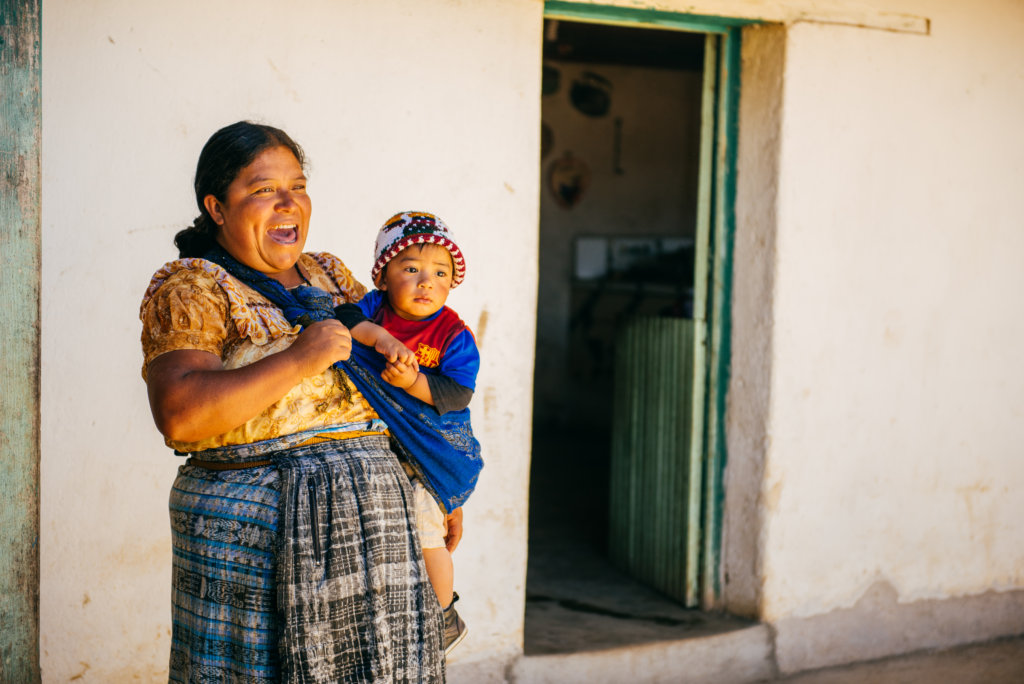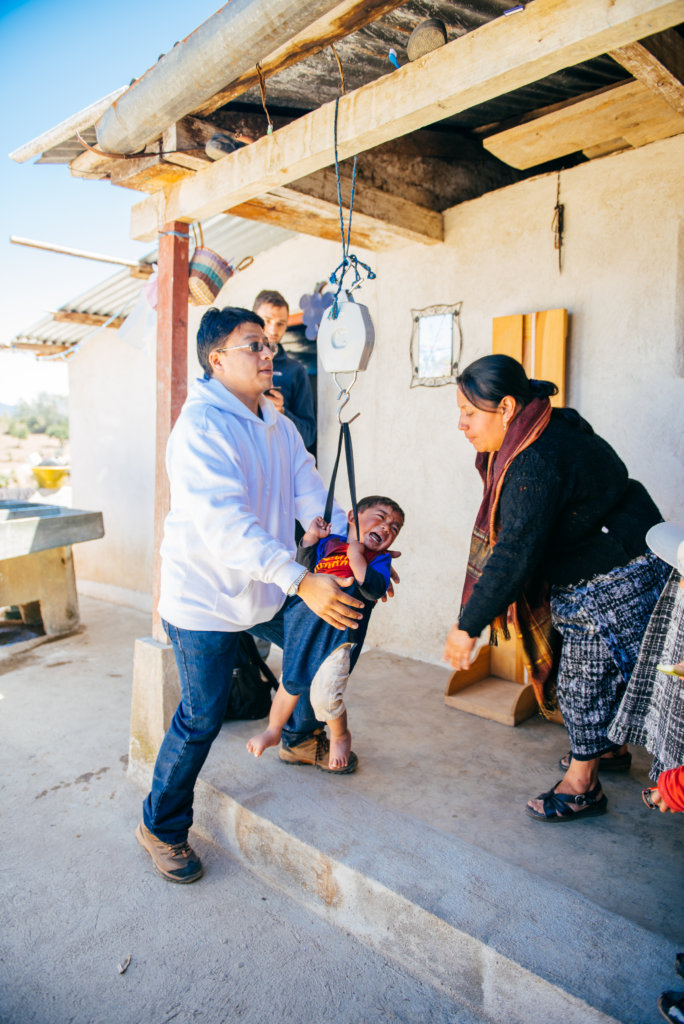By Caitlin Baird | volunteer researcher
Dear Friends,
As we told you in our last report, we spent much of last year collaborating with Grand Challenges Canada on a clinical research study on the effects of chronic malnutrition in child development. Our researchers are currently working hard to publish this data and make it available to other global health workers, researchers, and nutritionists worldwide, but we wanted to share some of the preliminary results with you.
By now, you’re familiar with Wuqu’ Kawoq’s work on ammeliorating chronic malnutrition in infancy, and you know why we think it’s important. There is fifty years of longitudinal data supporting the simple fact that a well-nourished child is much less likely to die of infectious disease during childhood and is much less likely to be chronically ill as an adult. We also know that children who are chronically malnourished score lower on verbal reasoning tests and, for each standard deviation a child falls below “normal” on a growth chart, we can expect a subsequent drop in IQ.
Chronic malnutrition during infancy has far-reaching implications for the health and well-being of that child for the rest of their life. We feel that this is unjust— especially since chronic malnutrition is so easily treatable.
Data from our pediatric growth clinic suggested that intensive home-based approaches to treating chronic malnutrition could have meaningful nutritional and developmental outcomes. If you’ve been following our work, you’ve seen for yourselves that this is often the case, as you’ve watched children improve over time with ongoing assessments and nutritional interventions.
There is a large emphasis in global health on preventing stunting, but less emphasis on treating stunting in patients who have already fallen below normal on their growth chart, mainly because the window of time for successful treatment is comparatively small (“the first thousand days”), and because, on a wide scale, treating stunting is more expensive than preventing it. However, in places like Guatemala, where more than 85% of children under five in a community are often already stunted, focusing on prevention simply isn’t enough.
We had three major hypotheses going into this project:
1) the diets of stunted indigenous Guatemalan children are of low-quality, and they can be improved with intensive in-home counseling by community health workers of the child’s primary caregivers
2) intensive in-home counseling will have positive effects on the growth of stunted children
3) intensive in-home counseling will have positive effects on the development of stunted children
The study found hugely significant improvements in both dietary diversity and dietary quality in the children’s diets following intensive home-based intervention, and we believe this may help explain the steady improvements we noticed in the growth and development of the study participants over time.
We learned a lot from this work. Perhaps most importantly, it helps back up our argument that treating chronic malnutrition— as opposed to just preventing it— is both feasible and justifiable.
With your help, we will continue our efforts and apply what we have learned in our ongoing interventions and efforts to work with patients and their families to help lift the lifelong burden that is chronic malnutrition in childhood.
With gratitude,
The Wuqu’ Kawoq | Maya Health Alliance Team
Links:
Project reports on GlobalGiving are posted directly to globalgiving.org by Project Leaders as they are completed, generally every 3-4 months. To protect the integrity of these documents, GlobalGiving does not alter them; therefore you may find some language or formatting issues.
If you donate to this project or have donated to this project, you can receive an email when this project posts a report. You can also subscribe for reports without donating.
Support this important cause by creating a personalized fundraising page.
Start a Fundraiser
